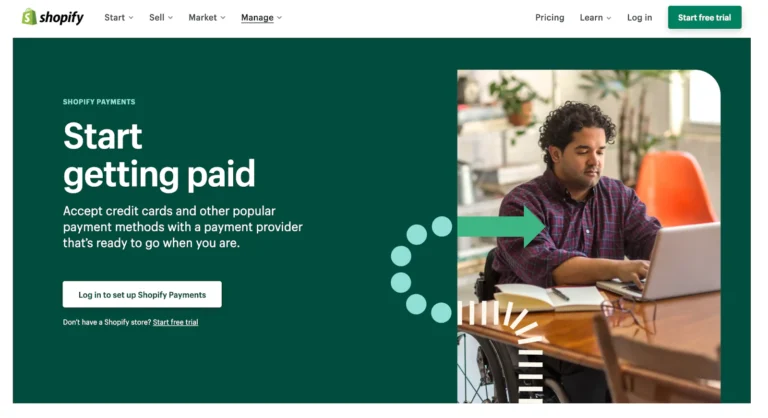In today’s digital age, establishing an online presence is crucial for businesses and individuals alike. One of the key steps in this journey is accessing and utilizing a website builder platform effectively. This article dives into the ins and outs of the “sitebuilder login” process, offering insights, tips, and FAQs to empower you on your online venture.
Table of Contents
- Introduction
- Understanding Sitebuilder Platforms
- What is a Sitebuilder?
- The Importance of Sitebuilder Platforms
- Navigating the Login Process
- Accessing the Login Page
- Entering Your Credentials Securely
- Troubleshooting Login Issues
- Forgot Password: Steps to Recovery
- Account Locked: What to Do Next
- Customizing Your Website
- The Dashboard Overview
- Choosing a Template
- Editing Tools and Features
- Saving and Publishing Your Work
- Drafts and Auto-Saves
- Previewing Changes
- Making Your Site Live
- Optimizing for SEO
- Understanding SEO for Beginners
- Incorporating Keywords
- Meta Descriptions and Tags
- Mobile Responsiveness
- Importance of Mobile-Friendly Sites
- Ensuring Responsive Design
- Utilizing E-Commerce Tools
- Adding an Online Store
- Setting Up Payment Gateways
- Engaging Content Creation
- Crafting Compelling Headlines
- Incorporating Images and Videos
- Security Measures
- Enabling SSL Certification
- Regular Backups
- Seeking Help and Support
- Accessing Customer Support
- Community Forums and Resources
- Conclusion
Introduction
In the digital realm, having a strong online presence is synonymous with success. A website acts as your virtual storefront, and creating one has never been easier thanks to sitebuilder platforms. This article takes you on a journey through the “sitebuilder login” process, offering guidance on building, customizing, and optimizing your online space.
Understanding Sitebuilder Platforms
What is a Sitebuilder?
At its core, a sitebuilder is a user-friendly online platform that empowers individuals and businesses to create and manage their own websites without the need for extensive coding knowledge. These platforms offer a range of customizable templates and tools that streamline the website creation process.
The Importance of Sitebuilder Platforms
Sitebuilder platforms democratize online presence, allowing anyone to showcase their ideas, products, or services effectively. With a plethora of features and functionalities, these platforms eliminate the technical barriers that once hindered website development.
Navigating the Login Process
Accessing the Login Page
To embark on your website creation journey, you first need to access the sitebuilder’s login page. This page is typically easily accessible from the platform’s main website.
Entering Your Credentials Securely
Once you’ve located the login page, enter your credentials – usually your email and password. Prioritize security by using strong, unique passwords and enabling two-factor authentication if available.
Troubleshooting Login Issues
Forgot Password: Steps to Recovery
It’s not uncommon to forget your password. Most sitebuilder platforms offer a password recovery option. This usually involves receiving a password reset link via your registered email.
Account Locked: What to Do Next
If you’ve entered incorrect credentials multiple times, your account might get locked. Don’t panic – follow the platform’s instructions to unlock your account securely.
Customizing Your Website
The Dashboard Overview
After successfully logging in, you’ll be greeted by the sitebuilder dashboard. This central hub allows you to manage all aspects of your website, from design to content.
Choosing a Template
Templates serve as the foundation of your website’s design. Browse through the available options and select a template that aligns with your vision. Remember, you can customize it later to reflect your brand.
Editing Tools and Features
Sitebuilders provide intuitive editing tools that enable you to add text, images, videos, and more. Experiment with these features to create a visually appealing and engaging website.
Saving and Publishing Your Work
Drafts and Auto-Saves
While designing your website, save your progress regularly. Most sitebuilders have an auto-save feature, but it’s a good practice to manually save too.
Previewing Changes
Before making your website live, use the preview feature to see how your changes will look to visitors. This helps catch any discrepancies before they’re published.
Making Your Site Live
When you’re satisfied with your design, hit the “Publish” button to make your website accessible to the world. Congratulations – you’re officially online!
Optimizing for SEO
Understanding SEO for Beginners
Search Engine Optimization (SEO) is the practice of enhancing your website’s visibility on search engines like Google. Start by understanding basic SEO principles, such as keywords and metadata.
Incorporating Keywords
Identify relevant keywords related to your content and integrate them naturally into your website’s text. This helps search engines understand what your site is about.
Meta Descriptions and Tags
Craft compelling meta descriptions and title tags for each page. These snippets provide a brief preview of your content on search engine results pages.
Mobile Responsiveness
Importance of Mobile-Friendly Sites
With the majority of internet users accessing websites through mobile devices, having a mobile-responsive site is essential. It ensures a seamless experience across different screen sizes.
Ensuring Responsive Design
Choose a template that offers responsive design or use the sitebuilder’s tools to optimize your site for mobile devices.
Utilizing E-Commerce Tools
Adding an Online Store
If you’re looking to sell products or services, leverage the sitebuilder’s e-commerce features. Add an online store section and customize it according to your offerings.
Setting Up Payment Gateways
Integrate secure payment gateways to facilitate smooth transactions. Most sitebuilders offer integration with popular payment providers.
Engaging Content Creation
Crafting Compelling Headlines
Captivate your visitors with attention-grabbing headlines. A well-crafted headline can entice readers to explore your content further.
Incorporating Images and Videos
Visual content enhances engagement. Use high-quality images and videos that align with your brand and message.
Security Measures
Enabling SSL Certification
Security is paramount. Enable SSL certification to encrypt data exchanged between your website and visitors, establishing trust and data integrity.
Regular Backups
Frequent backups ensure that your hard work is never lost. In case of technical glitches or cyberattacks, you can restore your website to a previous state.
Seeking Help and Support
Accessing Customer Support
If you encounter challenges, reach out to the sitebuilder’s customer support. They’re there to assist you with technical issues and guidance.
Community Forums and Resources
Explore community forums, tutorials, and resources provided by the sitebuilder. Often, you’ll find solutions and inspiration from fellow users.
Conclusion
Embarking on the journey of creating a website through a sitebuilder is an exciting endeavor. From mastering the login process to crafting engaging content and ensuring optimal performance, you’re now equipped with the knowledge to build an impressive online presence. So, dive in, explore the tools, and let your creativity shine!




